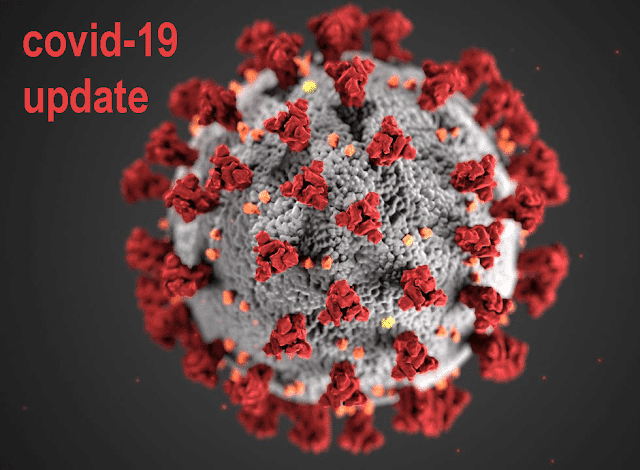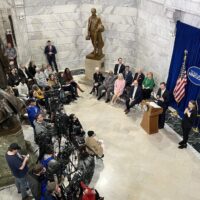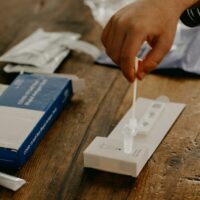Marking Kentucky’s deadliest day of the coronavirus pandemic, Gov. Andy Beshear announced that 17 more Kentuckians had died from COVID-19, and 13 of them were in long-term-care facilities. The total number of pandemic deaths in the state is now 171, with 40 percent in nursing homes.

“Seventeen is a hard number to take,” Beshear said. “Let’s make sure that we are doing everything we can to not have days like today.”
He said the pandemic has “likely plateaued” in the state, but “It’s still really deadly, especially for those in our senior living facilities; and while we are all ready to get to some type of new normal, these are people’s family and we’ve got to do this safely, we’ve got to move forward safely and people are counting on us.”
Beshear announced an outreach to businesses to work on helping them reopen safely, but that was overshadowed by the record number of COVID-19 deaths, a record he did not note. He said that along with the 13 deaths, there have been 46 new cases in residents and 12 new cases in staff.
A news release issued immediately after the governor’s daily briefing included a table showing the number of cases and deaths for both residents and staff in each of the 53 long-term-care facilities with cases as of April 21. It says a total of 454 residents have tested positive for the virus and 68 residents have died from its disease. Three more residents are considered possible COVID-19 deaths. Among staff, 196 have tested positive and one staff member has died from it.
“I don’t think this means that people have done anything wrong,” Beshear said. “We are all responding as quickly as we can. We are going to provide a significant amount of our testing capacity that is not necessarily being used at the hospitals. We are sending it to these nursing homes.” He said he would make an announcement Wednesday about a significant increase in testing capacity.
Increased testing is a major benchmark for easing social-distancing rules and opening up the economy. Beshear announced an initiative to seek plans from industries, trade associations and individual businesses describing how they can open safely, following Centers for Disease Control and Prevention guidelines. Plans can be submitted to HealthyAtWork.Ky.gov.
Beshear said the plans would be reviewed by Transportation Secretary Jim Gray, Economic Development Secretary Larry Hayes, Labor Secretary Larry Roberts and LaTasha Buckner, the governor’s chief of staff and general counsel.
Some Southern states, including Tennessee, have announced they would start easing restrictions soon, though they had not yet met the first benchmark, a two-week downward trajectory in new cases or positive-yest rates. Beshear strongly urged Kentuckians to not travel, especially to states that act prematurely.
“When other states are making decisions that are reckless, that I believe will cause a spike that will prolong this coronavirus in their state — we cannot travel and make other people’s poor decisions impact us,” he said. Earlier, he said, “We don’t have to do something first; we just have to do it the best.”
Beshear cautioned that opening the economy too soon would likely result in a spike in cases that would cause the state to have to shut down again; he said that happened in St. Louis during the 1918 influenza pandemic, and we need to “make sure that ultimately when we look at the long-term reopening of the economy, that we end up doing it in a shorter duration by not making some foolish or some very risky decisions.”
He added, “How we do this has to be data-driven. It has to be well-thought-out and well-planned, and it has to happen in phases. That is how we protect those around us, continue to pass the test of humanity and not frustrate all of the sacrifices we’ve made.”
Asked about letting hospitals resume elective surgeries, which Indiana plans to do, Beshear said he is talking to hospitals about a phased approach and handling outpatient and inpatient procedures differently.
The Kentucky High School Athletic Association canceled all spring sports Tuesday. Asked about fall high-school sports, Beshear said. “Without fans, the fall may be possible.”
In other COVID-19 news Tuesday:
- The state reported 177 new cases. The highest numbers were 71 in Jefferson County; 32 in Hopkins; 16 in Kenton; and 11 in Warren.
- The 17 deaths were a 52-year-old man in Jackson County; an 86-year-old woman in Lyon; three men, 80, 85 and 90, and two women, 80 and 81, in Hopkins; a 92-year-old man and two women, 90 and 94, in Graves; an 81-year-old man in Butler; a 73-year-old man and a 93-year-old woman in Kenton; a 58-year-old woman in Grant; and two men, 71 and 81, and one woman, 81, from Jefferson.
- A wreath was aid in the state Capitol rotunda in memory of the dead. Beshear again asked Kentuckians to light their houses green for all of those who have died, and noted one Hopkins County family lost two members in two days: Frieda F. Woods and most recently John Doug Woods, an Air Force veteran.
- He said 286 Kentuckians are currently hospitalized, 165 of them in intensive care; and 1,266 have recovered.
- Beshear said more than 700 coronavirus tests were done yesterday as of 4:30 p.m. ET at the four drive-thru sites in Paducah, Madisonville, Somerset and Pikeville. He had hoped for more, and announced that people without symptoms might be able to get tested. The sites will be open through Thursday. Drive-thru testing is also being done in Murray and Hopkinsville.
- Beshear said the state was making progress in getting personal protective equipment, but said it still needs much more, to not only prepare for a surge of cases, but to also start doing elective medical procedures.
- Emergency rules make it easier for people with opioid addiction to get treatment, Phil Galewitz reports for NPR. Under the national emergency declared by President Trump, a federal law that required patients to have an in-person visit with a provider before they could be prescribed medications for the treatment of opioid use disorder, like Suboxone, has been suspended and now patients can get these prescriptions via telemedicine, he reports. Addiction experts have been calling for this change for years.
- The Associated Press reports that a malaria drug widely touted by the president for treating COVID-19 showed no benefit in a large analysis of its use in U.S. veterans’ hospitals, with more deaths among those given hydroxychloroquine versus standard care. The AP reports that the study of 369 patients is the largest look yet at hydroxychloroquine with or without the antibiotic azithromycin, and notes that it has not yet been peer-reviewed. The NIH and others continue to do more rigorous tests.
- The Lexington Herald-Leader’s coronavirus tracker has been updated. Daniel Desrochers reports that of the 154 deaths from COVID-19, 1.08% are in people between the ages of 40 and 49; 1.64% are between 50 and 59; 7.87% are 60-69; 13.73% are 70-79; 30.2% are 80-89; and 47.22% are 90-99.






